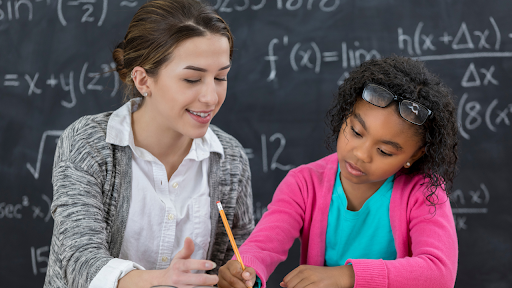In the world of education, there’s a saying that goes, “Education is not the filling of a pail but the lighting of a fire.” It’s a sentiment that perfectly encapsulates the transformative potential of one-on-one learning, a concept that has gained increasing recognition in recent years. Private tutors, when they work with college students, play a pivotal role in this educational paradigm shift. They offer a personalized, tailored approach to learning that can make all the difference in a student’s academic journey.
In this blog, we’ll explore the remarkable power of one-on-one learning and present you with five compelling reasons why private tutors make such a difference.
5 Reasons Why Private Tutors Make a Difference
Private tutors make a difference through one-on-one teaching in the following ways:
Reason #1: Personalized Learning
One of the most significant advantages of private tutoring is the level of personalization it provides. In traditional classroom settings, instructors often struggle to cater to the individual needs and learning styles of each student. However, private tutors excel in this area. They adapt their teaching methods, pace, and content to match the unique needs of their students. Whether you’re a struggling student who needs extra support or an advanced learner seeking to dive deeper into a subject, private tutors ensure that the learning experience aligns perfectly with your goals and abilities.
Reason #2: Enhanced Understanding

Private tutors have the luxury of time and flexibility to explore topics in depth. University tutors, in particular, can guide college students through complex subjects, breaking down intricate concepts and ensuring a deeper understanding. This individualized attention allows students to ask questions freely, seek clarifications, and engage in meaningful discussions.
Reason #3: Building Confidence
Confidence is a crucial component of academic success. Many students struggle with self-doubt and fear of failure, which can hinder their progress. Private tutors are not only educators but also mentors who provide emotional support and encouragement. Their constant feedback and positive reinforcement empower students to overcome challenges and build self-assurance. As a result, students often find themselves excelling in their studies and becoming more proactive learners.
Reason #4: Customized Study Plans
Private tutors create personalized study plans that help students make the most of their time and resources. These plans are tailored to a student’s strengths and weaknesses, ensuring that they focus on areas that need improvement while maximizing their strengths. Whether it’s test preparation, essay writing, or mastering a particular skill, private tutors can design a roadmap to success that is both efficient and effective.
Reason #5: Accountability and Progress Tracking
Tutors keep students accountable for their learning journey. Regular sessions and progress assessments ensure that students stay on track and remain committed to their goals. University tutors, in particular, understand the demands of higher education and can help students navigate the challenges they face, from time management to research and critical thinking.
In conclusion, the power of one-on-one learning with private tutors cannot be overstated. From personalized learning experiences to enhanced understanding, confidence building, customized study plans, and accountability, these educators have a transformative impact on students of all ages. Whether you’re a high school student striving for excellence or a college student seeking to excel in your chosen field, private tutors, including university tutors, can provide the guidance and support you need to achieve your academic goals. Embrace the power of one-on-one learning and unlock your full potential today.



